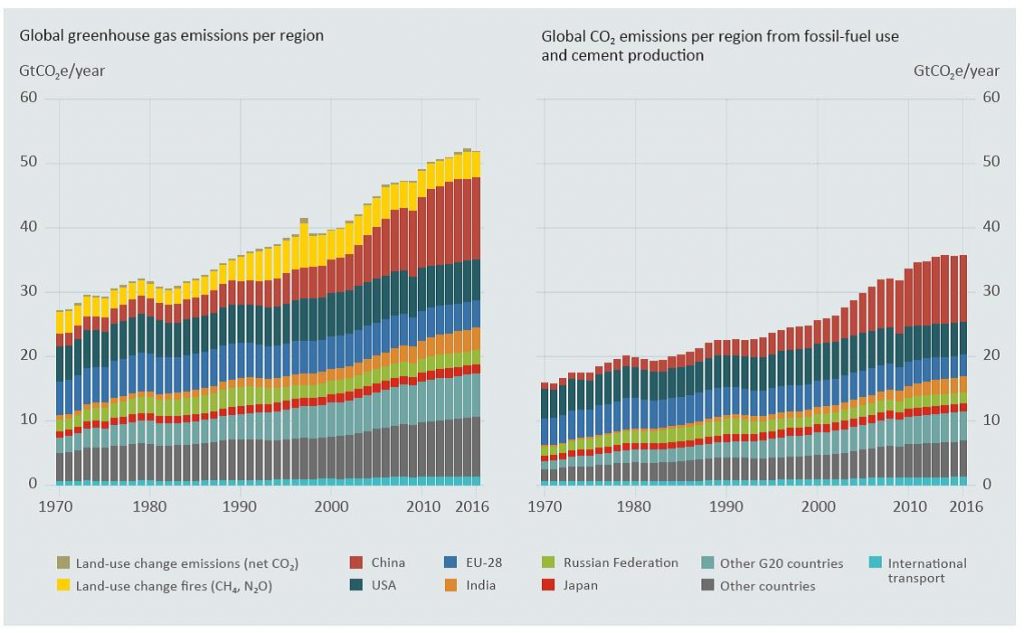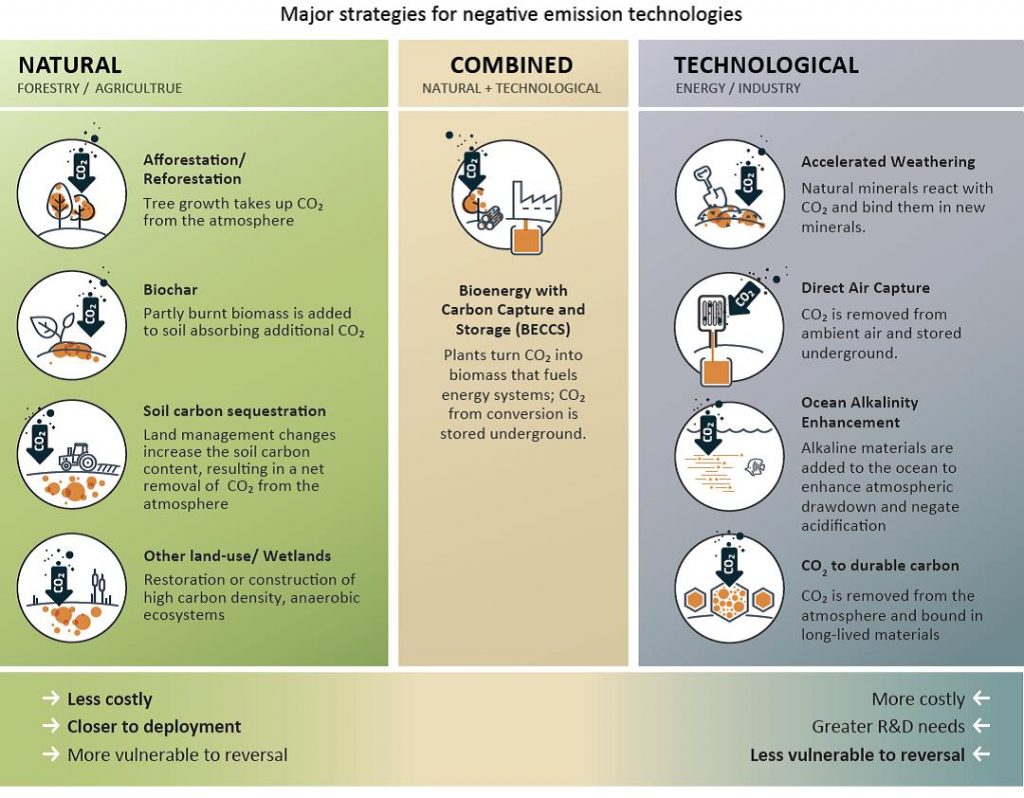UN outlines gap between global emissions and Paris Agreement pledges

November 2nd, 2017
Governments across the world need to urgently revise their 2020 emissions targets pledges to avoid the worst impacts of climate change, a new UN study has found.
According to the UN Environment Programme’s (UNEP) latest Emissions Gap Report, meeting current commitments under the Paris Agreement would only lead to a one-third reduction in emissions necessary to effectively tackle climate change.
The Paris Agreement set two major temperature goals: a long-term goal of keeping the increase in global average temperature to “well below” 2°C above pre-industrial levels, and a second goal to limit the increase to 1.5°C.
However, the report indicates that there is a significant distance between the collective ambitions and commitments in individual countries Nationally Determined Contributions (NDC) under the Paris Agreement.
The report forecasts that temperatures will rise by at least 3oC by the end of this century, even if current unconditional and conditional NDCs under the Paris Agreement are implemented.
The report stresses the need for Governments and non-state actors to commit to immediate short-term reductions in emissions, as well as ambitious expansions in their long-term climate pledges.

Global greenhouse gas emissions per region/Global CO2 emissions per region from fossil-fuel use and cement production Source: UNEP
Europe Lagging Behind
The report indicates that while G20 countries are collectively on track to meet the Cancun Pledges for 2020, other countries could do more to reduce emissions in the short-term.
The Cancun Agreements are a set of significant decisions by the international community to address the long-term challenge of climate change in a collective fashion.
The European Union, in particular, is lagging behind its Paris Agreement target to reduce greenhouse gas emissions by at least 40 per cent by 2030 compared to 1990 levels, according to the report.
Combined, the G20 and EU member states make up three-quarters of global greenhouse emissions, with UNEP Executive Director Erik Solheim stressing that some countries are “not doing nearly enough to save hundreds of millions of people from a miserable future”.
Mr Solheim said that this was “unacceptable” and pointed to the use of innovative renewables technology as a possible solution to cut emissions into the future.
“If we invest in the right technologies, ensuring that the private sector is involved, we can still meet the promise we made to our children to protect their future,” he said. “But we have to get on the case now.”

Negative emission technologies assessed in the report Source: UNEP
Private Pollution and Solutions
Subnational and non-state actors such as private companies also make significant contributions to climate change, the report states.
According to the UNEP, the world’s 100 largest emitting publicly traded companies account for around a quarter of global greenhouse gas emissions.
The report recommends that State and Non-State bodies start acting together to mutually reinforce each other’s climate pledges to limit their impact on the planet.
It also outlines how the gradual phase-out of an estimated 6,683 coal-fired power plants worldwide would help bring down emissions levels.
“If these plants are operated until the end of their lifetime and not retrofitted with Carbon Capture and Storage, they would emit an accumulated 190Gt of CO2,” the report states.
The study also laid out practical measures to reduce our carbon footprint by expanding mitigation action within agriculture, buildings, energy, forestry, industry, and transport sectors.
The release of the study comes just days before the kick-off of the second weekend of the Citizens’ Assembly on climate change, which is set to discuss emissions from transport and agriculture.
[x_author title=”About the Author”]







